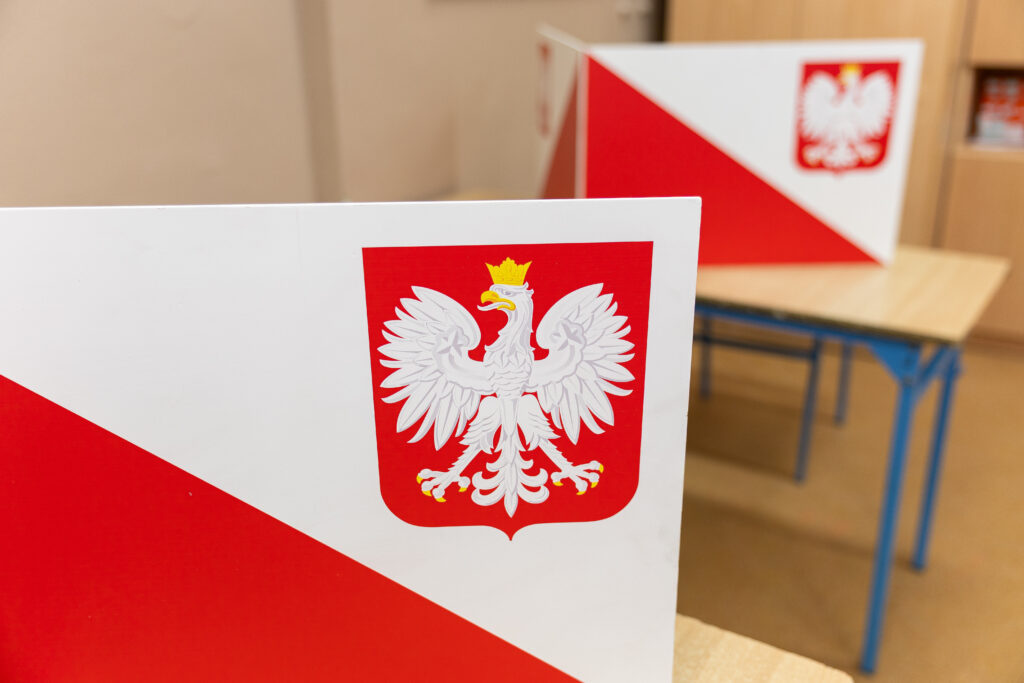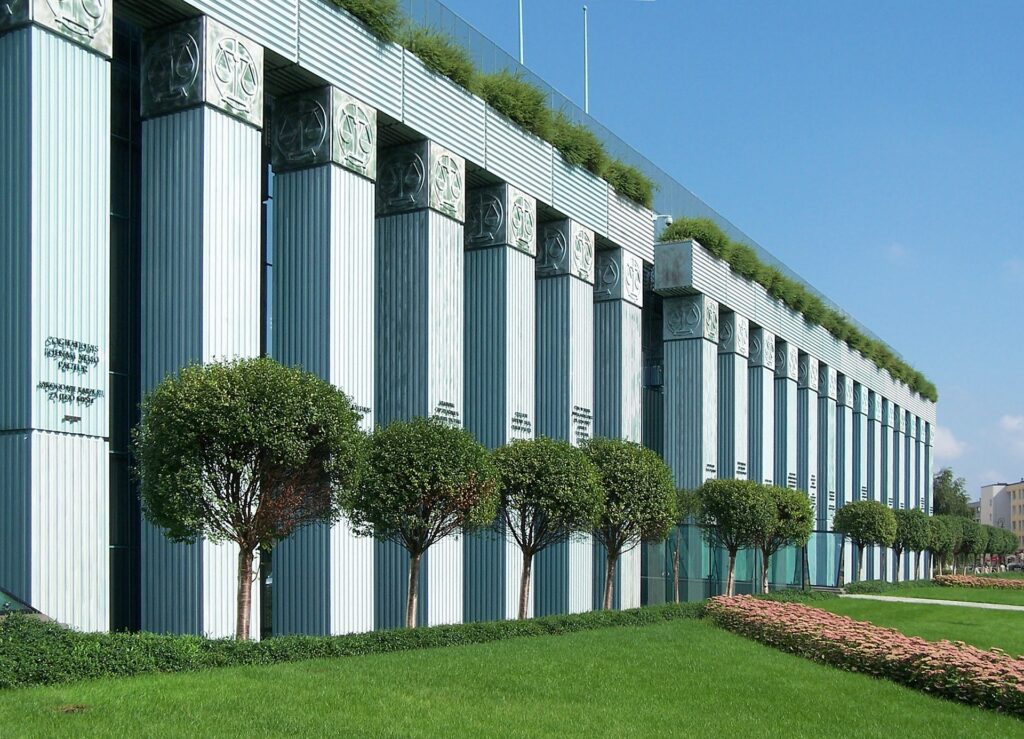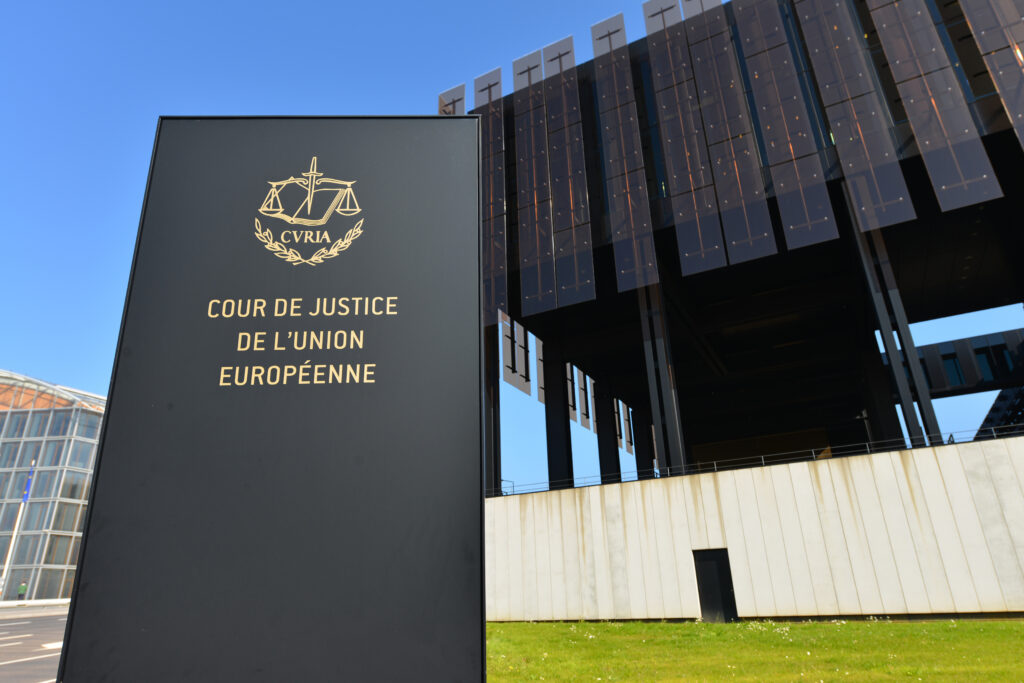Shortly after the end of the second round of Polish presidential elections, which took place on 1 June 2025, the International Observation Mission of the Organisation for Security and Cooperation in Europe (OSCE) issued a Statement of Preliminary Findings and Conclusions concerning the elections. Unlike the statement issued after the first round, which, as we pointed out on this website, raised serious concerns regarding the emphasis placed on certain issues, particularly with regard to the proportion of the most significant abuses, this time the statement does not raise any major concerns. The fundamental abuses committed in particular by the current government camp have been duly highlighted.
Non-transparent support for Rafał Trzaskowski by third parties
First and foremost, doubts about campaigning for Rafał Trzaskowski by third parties in a non-transparent manner, including possible financing from abroad, were brought to the spotlight. Contrary to the statement issued after the first round, the disgraceful role of the Research and Academic Computer Network – National Research Institute (NASK), which should be described as misinformation of the public, was duly highlighted.
Already in the introduction to the Statement, it was pointed out that:
The delayed, inconsistent, and non-transparent handling of a high-profile case involving third-party Facebook ads with undisclosed origins and funding raised concerns about the adequacy and timeliness of institutional responses, potentially diminishing public confidence in the institutions involved. While national institutions and civil society organizations continued to liaise with social networks, the effectiveness of their responses to notifications and escalations continued to vary significantly, resulting in a significant share of flagged content on some platforms remaining unaddressed. […] the insufficient regulation of third-party campaigning, particularly online, combined with the lack of effective oversight and sanctions further exacerbated the existing legal loopholes, undermining voters’ ability to make an informed choice. Several third parties, including voter mobilization and election observer associations, campaigned in favour of Mr. Trzaskowski, including online, but were not subject to legal requirements for disclosure of the origins of their income and expenditure. Two of these online campaigns were referred for investigation, on suspicion of foreign funding. [p. 2 of the Statement]
The scale of influence of third parties conducting a de facto campaign for one of the candidates, essentially circumventing the rules on election campaign financing (including the applicable limits) laid down in Articles 132–136 of the Electoral Code, is discussed in detail later in the Statement:
From 16 April until 14 May, two new Facebook profiles paid a total of approximately PLN 500,000 for 136 video ads on Facebook in favour of Mr. Trzaskowski and against Mr. Nawrocki and Mr. Mentzen, outspending the candidates themselves.
[This thread is expanded in footnote 28: Based on the Facebook Ad Library, from 16 April until 14 May, Wiesz Jak Nie Jest (You Know How It Is Not) paid PLN 321,484 for 104 ads, and Stół Dorosłych (Adults Table) paid PLN 165,958 for 32 ads while Mr. Nawrocki’s electoral committee paid PLN 288,896 and Mr. Trzaskowski’s committee PLN 227,027.]
NASK identified these Facebook ads and referred the matter to the Agency for Internal Security (ABW) for investigation, on suspicion of foreign funding; the case is pending.
[This thread is also expanded in footnote 29: On 15 May, the NASK Disinformation Analysis Center published on its website that “it has identified political advertisements on the Facebook platform in Poland, which may be financed from abroad”. A campaign management company, the Estratos Digital GmbH, sent a letter to Wirtualna Polska stating, inter alia, that its main investor is the US-based Higher Ground Labs, and that the ads were paid by an NGO client in Poland.]
Several IEOM interlocutors raised concerns that the authorities’ response was delayed and ineffective. Meta informed the ODIHR LEOM that it did not block these accounts and these ads, as they did not breach its community standards nor national legislation. On 20 and 21 May, parliament held extensive discussions on the issue of the Facebook ads, debating the effectiveness of the campaign finance legislation, including pertaining to online political advertising and oversight. Another Facebook account ran campaign ads in value of PLN 388,000 paid by a civil society organization allegedly using foreign funds.
[Footnote 31 clarifies: Based on the Ad Library, the Facebook account ‘Choose Future’ (Wybierzmy Przyszłość) paid PLN 220,000 from 18 until 24 May while it paid PLN 804,000 from 24 April until 28 May.]
While Meta applies, by means of an automated process, spending limits to advertisers, the implementation of internal rules by a social platform is outside the current scope and capacity of the campaign finance oversight body.32 PiS filed two complaints to the NEC and the prosecutor’s office, alleging that these Facebook ads constitute illicit foreign funding of Mr. Trzaskowski’s campaign. [pp. 8-9 of the Statement]
Footnote 27 (p. 8) also lists other activities undertaken by non-governmental organisations that undoubtedly constitute support for Rafał Trzaskowski:
For instance, Akcja Demokracja paid for 600 digital billboards and published three online ads, including on Meta and Google, the Committee for Defence of Democracy advertised that they rent a train and organised bus transportation to transfer individuals from Katowice to Warsaw for Mr. Trzaskowski rally on 25 May; the company “Fat Frogs Media” paid PLN 131,000 for Google ads. The Spontaneous Civic Platform printed and paid for billboards and banners portraying Mr. Trzaskowski positively and Mr. Nawrocki negatively.
Observers have criticised the current legal situation, which does not adequately regulate the support provided to candidates by third parties. In principle, their view is correct – it seems that the issue of the admissibility and possible rules for the purchase of advertising (billboards, TV spots or the use of paid promotion mechanisms on internet platforms) by entities other than election committees should be clearly settled by law. However, we cannot agree with the position expressed in the Statement, according to which:
By law, third parties campaigning cannot be sanctioned, including for use of illicit foreign financing in the campaign. The NEC informed the ODIHR LEOM that it would impose fines on electoral committees, in case third party campaigning took place with their consent. [p. 9 of the Statement]
Entities providing support to candidates may also theoretically be fined under Article 506(6) of the Electoral Code (granting an electoral committee a financial advantage from a source other than a Polish citizen permanently residing in the territory of the Republic of Poland) or Article 507 (granting an election committee a non-monetary benefit other than that permitted by law).
The Statement also noted a somewhat similar violation, which did not reach the wider public, consisting in the fact that:
One citizen observer organization endorsed one of the candidates contesting the run-off, undermining its role as non-partisan and impartial observers. [p. 1 of the Statement]
The detailed part of the Statement (p. 10) specifies that this organisation was the Committee for the Defence of Democracy (KOD), which published a statement supporting Rafał Trzaskowski. The OSCE observers emphasised that such action is contrary to the Declaration of Global Principles for Nonpartisan Election Observation and Monitoring by Citizen Organizations (a non-binding set of good practices in this area), according to which:
Non-partisan election observation and monitoring by citizen organizations is impartial towards all political parties, candidates and those in favor of or opposed to any issue or initiative presented in a referendum
The status of the Extraordinary Control and Public Affairs Chamber of the Supreme Court
The Statement also presented a more nuanced and therefore more accurate picture of the jurisdiction of the Extraordinary Review and Public Affairs Chamber of the Supreme Court. While it was reiterated that:
Concerns have been raised about the legitimacy of the Supreme Court Chamber of Extraordinary Control and Public Affairs, due to controversy over the appointment of judges and the establishment of the chamber in 2018. This has led to many IEOM interlocutors questioning the independence of this chamber, especially after the European Court of Human Rights (ECtHR) and the European Court of Justice (ECJ) found that the chamber does not meet the criteria of a tribunal established by law. [p. 11 of the Statement]
– this time, however, unlike in the Statement issued after the first round, it was also emphasised that:
Justice (ECJ) found that the chamber does not meet the criteria of a tribunal established by law. However, controversies remain whether the ECJ decision applies to the application of Polish domestic law, like the Election Code, or only to interpretations of EU law. Legal expert opinion is also divided on the applicability of the European Convention of Human Rights to the resolution of electoral disputes concerning presidential elections.
Reference was made to a number of judgments of the European Court of Human Rights in which the Court held that neither the right to a court guaranteed in Article 6 of the European Convention on Human Rights, nor the right to free elections enshrined in Article 3 of Protocol No. 1 to that Convention, grants the ECtHR jurisdiction to rule on matters relating to presidential elections in a given country:
See the ECtHR’s Anchugov and Gladkov v. Russia, Nos. 11157/04 and 15162/05, §§ 55–56, 4 July 2013. However, as regards the election of the Russian President, the Court reiterates that the obligations imposed on the Contracting States by Article 3 of Protocol No. 1 do not apply to the election of a Head of State (see Baškauskaitė v. Lithuania, No. 41090/98, Commission decision of 21 October 1998; Guliyev v. Azerbaijan (dec.), No. 35584/02, 27 May 2004; Boškoski v. the former Yugoslav Republic of Macedonia (dec.), No. 11676/04, 2 September 2004; Niedźwiedź v. Poland (dec.), No. 1345/06, 11 March 2008; and Krivobokov v. Ukraine (dec.), No. 38707/04, 19 February 2013). See also decision by the ECtHR of 19 November 2020 in case Bunikowski v. Poland where the ECtHR found inadmissible a challenge to the results of the 2020 Polish presidential election relying on the above referenced case and other case law based on Protocol 1, Article 3 and Article 6, as the alleged violation of the right is outside the range of rights and freedoms guaranteed by the convention and the protocols.
The Bunikowski v. Poland decision of 19 November 2020 was also recalled in the opinion of the First President of the Polish Supreme Court, Professor Małgorzata Manowska, which emphasised that the case law of the European courts is not applicable to ruling on the validity of Polish elections.
Partiality of public media
The OSCE Election Mission Statement, on the other hand, emphasised more clearly the bias (in favour of Rafał Trzaskowski) of Public Television, highlighting its specific statutory obligations in this regard. However, the significance of this emphasis was somewhat weakened by the mention, almost in the same place, of the opposite and allegedly even greater bias shown by Telewizja Republika (Polish largestconseravtive leaning TV station), which could give the impression that the two phenomena are somehow equivalent:
Contrary to its mandate, public television, along with private TVN and Onet often portrayed Mr. Nawrocki in a negative manner, while the coverage of Mr. Trzaskowski was largely uncritical. TV Republika displayed a more pronounced bias by covering Mr. Trzaskowski predominantly negatively. [p. 2 of the Statement]
It should be emphasised once again that commercial television stations should not be measured by the same standards as public media, which are financed by all citizens through radio and television licence fees and budget subsidies.
Summary
In summary, it seems that the constructive criticism of the OSCE Election Observation Mission Statement after the first round of the presidential election, that was expressed, among other places, on this website, has had the desired effect. The Statement issued after the second round should be commended for bringing to the fore the actual abuses, while limiting to almost none the number of ideological insertions not directly related to the electoral process. It is also to be hoped that such reliable documentation of the above abuses by the OSCE will contribute to their proper investigation and, consequently, to holding those responsible to account.
Image source: Adobe Stock.



